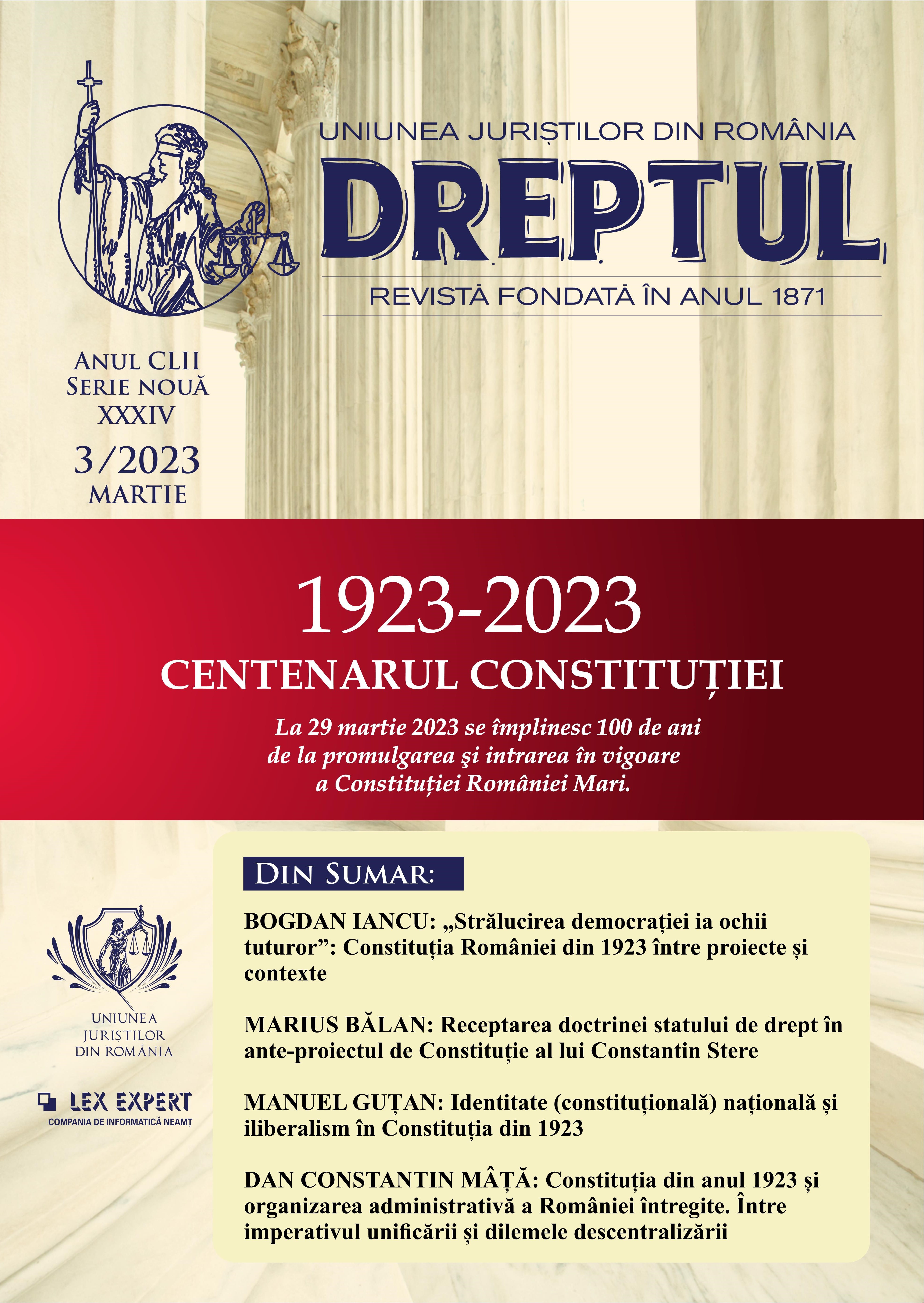Constituția din anul 1923 și organizarea administrativă a României întregite. Între imperativul unificării și dilemele descentralizării
The Constitution of 1923 and the administrative organization of the unified Romania. Between the imperative of unification and the dilemmas of decentralization
Author(s): Dan Constantin MâțăSubject(s): Constitutional Law, Public Administration, Political history, Interwar Period (1920 - 1939), Administrative Law
Published by: Uniunea Juriștilor din România
Keywords: the Romanian Constitution of 29 March 1923; administrative reform; decentralization; regionalization; the administrative unification of unified Romania; depoliticization of public administration;
Summary/Abstract: In this article, the author shows that the adoption of the Romanian Constitution of 29 March 1923 represented a reference moment for the organization of public administration as well. Although the principles and general architecture of the public administration were not essentially different from those provided for in the Constitution of 1 July 1866, the political class, as well as the doctrinaires concerned with the challenges of the administrative organization of the entire territory of the country hoped that, by adopting the new Fundamental Law, the foundations of another reality of the Romanian administrative life will be laid. The author claims that the adoption of the new Constitution for the history of the Romanian public administration is more important through the windows of hope and opportunity it opened for the achievement of a broad administrative reform, built around the widened decentralization and of the effective regionalization, than through the novelty of its own provisions. The level of scientific debates in the context of the adoption of the Constitution shows us an in-depth understanding in the Romanian legal environment of the national and European constitutional and administrative phenomenon by spreading, adapting and processing the most important theories regarding the organization of the modern public administration. Seen from this perspective, the comments and the arguments of the doctrinaires of that time, around the theory of decentralization, of the principle of local autonomy or of the dynamics of regionalization, retain their full scientific value even today.
Journal: Revista „Dreptul”
- Issue Year: 2023
- Issue No: 03
- Page Range: 68-80
- Page Count: 13
- Language: Romanian
- Content File-PDF

